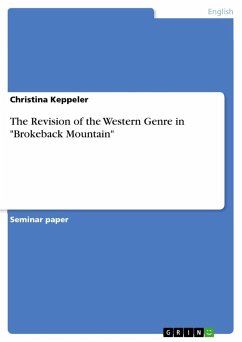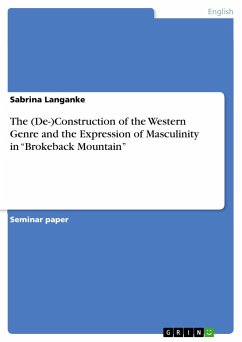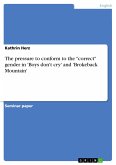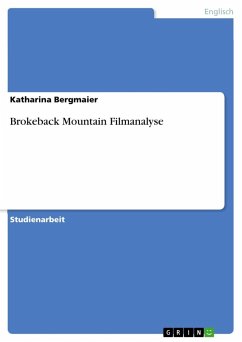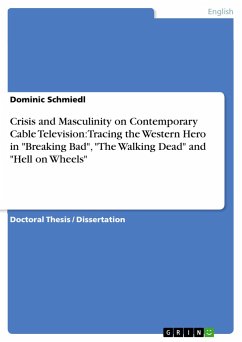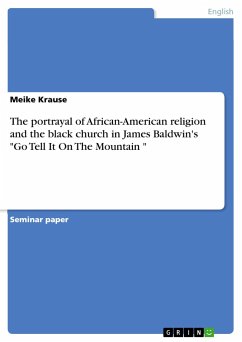Seminar paper from the year 2013 in the subject American Studies - Literature, grade: 1,7, University of Passau (Lehrstuhl für Englische Literatur und Kultur), course: Queering American Culture in Fiction and Film, language: English, abstract: As the issue of homosexuality in the context of the Western has never been so openly expressed as in "Brokeback Mountain", it seems not surprising that the movie on the other hand also evoked highly critical and often homophobic voices. Such responses included for instance David Kupelian, a conservative journalist, calling Brokeback Mountain "The Rape of the Marlboro Man". Statements like this purport that the film struck America right at the heart and put highly praised and sacred American values into question. It also proves that the genre of the Western contains archetypical and conservative constructions of gender and sexual expression. As the documentary film "The Celluloid Closet" (1995) conveys, the subject matter of homosexuality indeed has a relatively long tradition in Hollywood cinema, but mostly could not manage to depict gays in an equal and appropriate way. Often the movie's gay characters were portrayed as either exaggerated versions of what heterosexuals imagined as 'gay', as comic characters like 'the gay best friend' or the seductive villain, that gets sanctioned in the end.Gayness combined with classical Western motifs is groundbreaking, because it on the one hand rises mainstream Hollywood cinema on a new level, but on the other hand touches the audience by humanizing gay love for the very first time in that manner. "Brokeback Mountain" goes without categorizations and stereotypes, it rather sets the focus on true human emotions: the story of two young men, who unexpectedly fall in love with each other in Wyoming's wilderness and in the end ultimately fail.Beyond the aspects of heteronormativity and in connection with it homophobia, the film reshapes or at least challenges imaginings of American national identity. In this paper I want to outline ideological concepts which are closely connected to the imagination of the American West and the impact they have on America's self-understanding. Furthermore my essay will focus on the film's cinematographic language to portray Western landscapes, in what way the movie can be connected with classical conventions of the Western genre, to what extent it depicts iconic images like the cowboy and, on the other hand, how gender identities are constructed out of it. The focus of my argumentation is thereby to illustrate that Brokeback Mountain critically exposes questions of American identity as such by revealing inherent ambiguities in the conceptualization of the American West.

